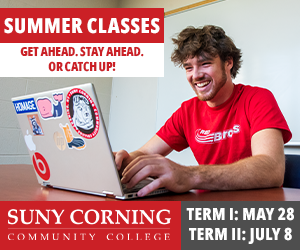Sometimes you just have one of those days. One of those days when you realize that, eventually, you will have to return your dorm key, hand in that last paper, and enter the real world. One of those days when you realize you have no idea what any of that means.
The workforce? Medical school? A fellowship? The list of possibilities is daunting and nearly endless; not every major is linked to an easy career path, nor is every path matched with an easy major.
What about business school? A graduate from our very own William E. Simon School of Business Administration can expect to earn a median salary of over $100,000. That in itself is enticing, but how do you get there and why would you choose to?
Contrary to popular belief, you don’t need an undergraduate degree in business or economics to attend business school. In fact, according to Simon School Executive Director of Admissions and Administration Rebekah S. Lewin ’02 (M.B.A.) over half of the incoming M.B.A. class at Simon majored in something other than business or financial economics as an undergraduate. Over a fifth of these students majored in the sciences and engineering.
“Many undergraduates pursue a major based upon their passions or personal interests,” Lewin said. “Graduate business study offers a large variety of career choices ranging [from work] in the health sector to consulting, finance, and information technology. [It] also provides training on the technical and practical skills needed to add immediate value to the workplace.”
With the four-year-old recession still burdening the economy today, the number of business school applications have dropped, but many new fields have emerged that require a business education, Simon School Assistant Director of IT and Operations Jason Buitrago explained.
He continued, describing how many of these opportunities are integrated into different sectors and a business education can open many doors.
Buitrago also emphasized the importance of work experience for M.B.A. program applicants.
“It’s more of a ‘baptism by fire’ type of education where you experience on the job training first and then learn the theory,” he said. “But we’re also excited about those young leaders coming right out of their undergraduate careers.”
Lewin emphasized that work experience is not as necessary for specific master’s programs as it is for the business administration program.
“Most Simon students who enroll in a specialized [one-year master’s] degree come directly after college,” she said. “It is excellent technical training and a great platform from which to execute a full-time job search.”
For the business administration programs, admission is highly selective for those with less than three years of work experience, and business schools look at many of the same things other graduate schools do including academic success and extracurricular involvement. Lewin explained that for the business programs, there is also a focus on “strong interpersonal skills and team and leadership experiences” as well as internship and job experience.
“Ultimately, it is a personal choice about ‘when’ is the right time to consider graduate study and how it best fits into a student’s life and career planning,” she said.
The graduate education programs at UR are fairly well-connected to the undergraduate students who often seek out relationships and connections, hoping to gain some insight into what exactly they’d like to do after college. Unfortunately, most Simon School students don’t have time to work as teaching assistants or in University offices, Lewin said.
The Simon School, however, reaches out to undergraduates in several other ways, putting on various events throughout the year to encourage student exploration of business school. Students can also complete coursework at the Simon School during their undergraduate careers at absolutely no extra cost to them.
“I decided to take [a business law class] at Simon my senior year,” Neftali Morales ’12 explained. “It was a great opportunity to take a graduate course while still an undergraduate.”
Business school is not just for business majors and can be the first step to many different career paths. Next time you’re having “one of those days,” consider stopping into the Simon School to see what they offer.
It may just be the elusive answer to the “real world” questions you’ve been asking.
Esce is a member of the class of 2015






